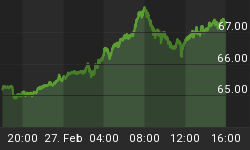Widespread protests have failed to halt the Kremlin’s march towards internet censorship and population control, and Russian President Vladimir Putin has now signed into law a set of bills that render both “fake news” and online “disrespect” of the state criminal.
It was only on March 7 that the Russian State Duma, the country’s lower house of parliament, passed the two bills, which then required approval in the upper house before going to the President.
While tens of thousands of protesters took to the streets across Russian cities after the Duma passed the two laws, the breakneck speed with which these laws were approved and signed by the president gave protesters no time to organize on a mass level.
The package of harsh restrictions is called the “digital sovereignty bill”, which requires all Russian telecoms companies to reroute internet traffic through the state telecom regulator, Roskomnadzor.
So, as of today, Russians find themselves living under a modern-day digital “iron curtain”.
According to The Moscow Times, the bills make it criminal for news outlets or individual users to spread “fake news”—determined by the authorities—or face fines of around $23,000 for repeat offenses.
Even more ominous is the fine and prison sentence for insulting state symbols and authorities, for which repeat offenders will pay around $4,500 and spend 15 days in jail.
In the face of expectedly harsh criticism, the Kremlin insists that the new laws are nothing beyond the war on fake news and other digital forms of bullying that governments across Europe are waging. But this is decidedly different, whatever spin the Kremlin wishes to put on it.
Europe’s “war” has been about protecting privacy—not about suppressing dissent and controlling the population. The EU’s tough General Data Protection Regulation (GDPR) push focuses on providing consumers with greater control over how their personal data is collected and used. Related: Homeowners Experiment With Risky New Investment Trend
The Western world is also trying censor hate speech that incites violence against groups of people. That doesn’t include “disrespecting” the state or its authorities, a time-honored tradition of democracy.
Speaking to NPR, Matthew Rojansky, director of the Wilson Center's Kennan Institute, said: "The idea that there should be a Russian internet is very convenient for those whose main goal is control, and that's where you come back to the siloviki, the security apparatus of Russia, including the legacy organizations of the KGB which were uncomfortable to begin with, with the idea that Russians were fully connected to a global information space that was in their view a tool of the United States," Rojansky said.
The new laws are in sharp contrast to Russia’s own spreading of fake news and its use of such tools to manipulate 2016 U.S. presidential elections.
It also makes one thing very clear: The internet in Russia is a tool of the government, not a right of the people.
Take the Russian troll factories, for example. As PRI reports, a Russian journalist recently went undercover in a troll factory, recounting a massive, well-organized operation and concluding that the fight against trolls is impossible to win.
Divided into departments categorized as “news division”, “social media seekers” and “demotivators” who produce visual memes, the operation boasted hundreds of young Russians working in rotating shifts.
Related: U.S. Tech Stocks Look Increasingly Vulnerable
And this operation was headed by a local restauranteur who has been sanctioned by the U.S. for interfering in elections in 2016.
The Russian journalist is Lyudmila Savchuk, and she was among the first to uncover Russia’s disinformation campaign in 2014.
The iron curtain has been drawn, and while Russian protesters like to compare it to North Korea, China is an equally viable example. Consider Beijing’s new, state-controlled “fake news” killer, a platform called ‘Piyao’ and its even more sinister ‘Social Media Credit Score” system, which uses big data and AI algorithms to decide who is an upstanding citizen and to punish those who aren’t.
China may be big brother, but Russia is big daddy.
Make no mistake, the new cold war is digital, and the new iron curtain boldly separates those with access to information and those without.
By Charles Benavidez for Safehaven.com
















